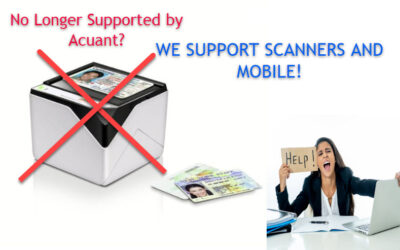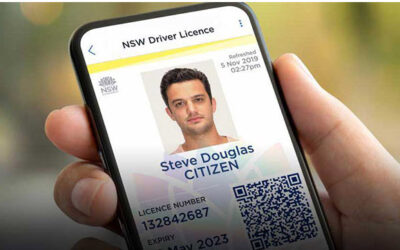Old movies you know, the kind in black and white would sometimes show a couple visiting a hotel or motel and signing in as “Mr. and Mrs. Smith” before disappearing upstairs for some illicit hanky-panky.
Sadly, for those who were into that sort of thing, that’s largely gone by the wayside. Hotels and motels these days want to see an ID as part of the registration process, and they have plenty of good reasons for wanting to do so starting with guest expectations, according to Deloitte’s report, “Next-gen hotel guests have checked in: The changing guest experience.”
“Gathering guest information, interpreting it, sharing it with the right people at the right time, and intelligently utilizing it to create a guest experience that is meaningful and different is what has and will continue to differentiate hotels from the masses,” the report notes.
Why does hotel/motel registration require an ID?
Simply, because they typically are required to. “The decision to both collect and store ID information including passports originates with the government in whatever location a hotel is,” wrote Mashable. Those laws could be a combination of federal, state, and city.
And why is that? Blame 9/11, Mashable said. “Hotels are a way governments around the world can keep tabs on citizens, wherever they go.”
Some hotels particularly ones with minibars also need an ID to ensure that a guest is of age, both to enter into a contract with the hotel and for access to whatever’s in the minibar.
“Motels and hotels typically require the guest making the booking to be at least 18 years of age,” writes USA Today. “Motel 6, for example, requires the person who makes the booking to be at least 18 to 21 years old, depending on the state.”
Security in the hotel itself is of course a factor. Guests wouldn’t want someone to claim they’d “lost their key” and gain access to their room without having someone check their ID. Hotels also want to ensure that they can contact a guest later, whether it’s due to a forgotten item or damage or theft in the hotel itself.
And certainly, in this day and age, marketing plays a role. “Mr. and Mrs. Smith” probably didn’t want to get a missive a few weeks later asking if they’d had a good time on their trip, but today’s travelers accustomed to affinity programs and repeat customer benefits would probably be surprised if they stayed at a hotel or motel and then never heard from them again.
“’Knowing’ guests contributes to higher satisfaction and likelihood to return,” Deloitte found in a survey of more than 6,600 hotel guests.
Documents that hotel/motel registrations need
Typically, a hotel or motel will want to see a government-issued photo ID that shows the person’s name, address, and birthdate, as well as a photo. This helps the hotel or motel know who’s staying there and how to reach them later if there’s an issue. The birthdate, of course, helps ensure that the guest and their guests are of age.
A driver’s license is a fairly typical way of providing this government-issued photo ID, especially since many people these days drive a car, whether their own or a rental vehicle, to the hotel or motel. That also helps ensure people are legally allowed to drive the car they’re putting in the hotel’s parking lot or structure.
The most secure way of recording information from these documents is to see the actual document not a photocopy or a screenshot, which could be fraudulent — and then scan it directly into the hotel or motel computer system. That way, the desk clerk can be more certain that the document is legitimate, and the information doesn’t need to be retyped or entered manually, which can introduce transcription errors.
Scanning the card is likely also faster than manually re-entering the data, leading to a better customer experience not only for the impatient guest who’d like to get to their room, but for all the other guests in line behind them, especially during busy periods.
The advantages of the cloud
These days, many hotels and motels store their guest data in the cloud rather than on-site. First of all, this helps keep the data protected and secure. If something happens to the hotel’s computer, or even to the hotel itself, the vital data that keeps the business going will still be there and safe.
“Thanks to the GDPR and other data privacy laws under consideration, if a company collects customers’ data, they also have the obligation to protect it,” Mashable said, writing about a 2018 hack of Marriott systems that breached data from 500 million customers.
Moreover, since many hotels and motels these days are part of larger organizations, uploading the data to the cloud means that the parent organization can consolidate that data with that of all its other hotels or motels and derive important business information from it. For example, guests who stay a certain number of nights at any hotel or motel in the chain might accrue benefits such as free rooms. Having the company track the information means the guest doesn’t have to.
“Having guests in a centralized database may be helpful so that — in the case of a massive chain like Marriott with multiple seemingly disparate properties — the behavior, background, and expenses of guests follow them as they check in around the world,” noted Mashable.
Second, people in the hospitality business aren’t necessarily IT experts, nor do they want to be. (Didn’t it seem like hotels, back in the day, kept dot-matrix printers in business?) Outsourcing management of computer resources to another organization means the hotel staff can focus on what they do best hospitality and not have to worry about whether the hotel’s computer can handle it when there’s a big convention or sporting event in town.
Finally, for guests concerned about identity theft from a nefarious hotel or motel employee, keeping the information in the cloud means that, once entered, the information is safe from everyone including the desk clerk.
Does all this mean the age of signing in as “Mr. and Mrs. Smith” is over? Not necessarily, according to the newspaper AZ Central. “It is entirely legal to check into a hotel under a different name,” it writes. “The hotel may need confirmation of your actual identity but they will adhere to the name that you have registered in when booking your room. Whether you book your hotel by telephone, online or in person, it is possible to remain anonymous.”
Interested in learning how optical character recognition can help your business protect itself by using physical identification documents? For a free trial of our API or software, please email us at [email protected].




